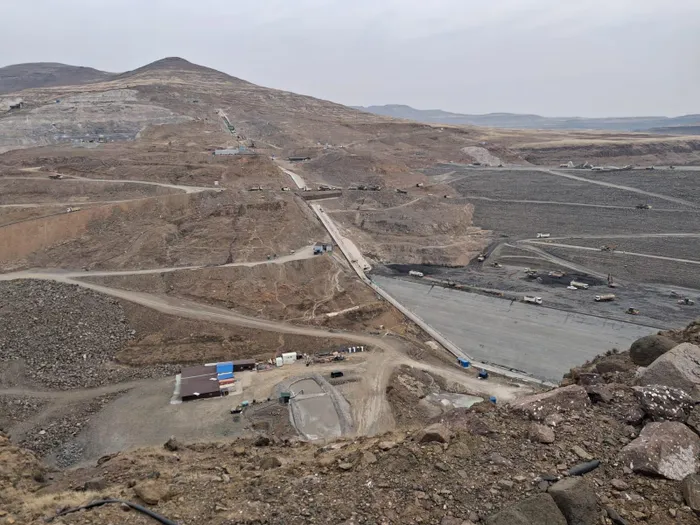Lesotho Highlands Water Project Phase II makes steady progress despite delays
WATER SUPPLY

Lesotho Highlands Development Authority (LHDA) said that despite delays in Phase II of the Lesotho Highlands Water Project (LHWP), the project is making steady progress.
Image: Yogashen Pillay
The Lesotho Highlands Development Authority (LHDA) has assured stakeholders that the Phase II of the Lesotho Highlands Water Project (LHWP) was making steady progress despite earlier setbacks.
Mpho Brown, Public Relations Manager of LHDA, last week outlined the project's foundational objectives, which initiated with Phase I to address water demands in Gauteng, while simultaneously enhancing Lesotho’s energy independence.
“LHWP phase 1 came about due to South Africa needing water for mining operations that were ramping up in Gauteng, and Lesotho had a need for energy sufficiency and there was a need for electricity in Lesotho, and there was a need for the Government to generate revenue,” Brown said.
“It was decided that both Lesotho and South Africa would share the cost of LHWP. It was decided that Lesotho would receive 56% of the cost benefit and South Africa would receive 44% of the cost. The reason was that all the infrastructure would be built in Lesotho, and they were not prepared financially to maintain the infrastructure. That 6% is now what we call royalties that Lesotho receives.”
Brown said that phase 1 of the project included the construction of the Katse dam and Mohale Dam, and that Phase II of the LHWP includes the construction of the Polihali Dam.
“It will also feed water to Katse dam. Phase II has multiple key components which also include the construction of a 38-kilometre tunnel that will transfer water to Katse. Before we started the construction of the two projects, a lot of foundational work had to be done; roads to the project site had to be developed, and electricity and power lines had to be brought to near Polihali,” Brown said.
Brown said that Phase II also has a hydropower component. He said this included the construction of the Oxbow Hydropower Scheme that will supplement Muela Hydropower station in its production of electricity. Muela currently serves 51% of Lesotho’s electricity demand, and Oxbow will add to this.
"Polihali will transfer water to Katse, and the amount of water going from Katse to Muela will increase, and that increased rate of flow is going to increase output at Muela by 30%," Brown said.
Looking ahead, Brown anticipates that by the end of 2026 or early 2027, the Polihali Dam’s construction will reach a level suitable for water impoundment. While water delivery is slated for completion by the financial year 2028/2029, the hydropower component will come online approximately a year after the water supply is initiated.
He said that the hydropower component will follow about a year or two behind, adding that there has been a lot of talk about the project being delayed, which is the reality of the project.
“The Phase II agreement was signed in 2011; the project was ratified by both Lesotho and South Africa at the end of 2013/2014, which already saw a two year delay. There were also delays in gratification in procuring consultants who were also going to help to procure contractors for the project. These delays affected the project up to 2019, and when we thought we were in the clear, COVID-19 hit.”
Brown said after COVID-19, at the end of 2022, was when they finally awarded the main contracts for the dam, tunnel, as well as the main bridges.
"One of the main reasons the project was perceived to be so much behind was that a certain level of optimism bias was in play. The feasibility study suggested that construction would take 65 months. However, we did learn that this was optimistic but not practical in implementation, and that has put us in a tight spot on when the project needs to be completed,” he said.
“There was [also] a figure of R8 billion in 2008 during the feasibility study of the project; however, the current long-term cost after a revised baseline of the project is R53bn. The feasibility study done in 2008 doesn’t account for the current full scope of the project and current costs. We have currently spent R18bn on the project, so the projects have not risen above the revised cost of R53bn.”
BUSINESS REPORT